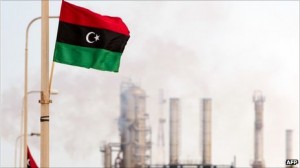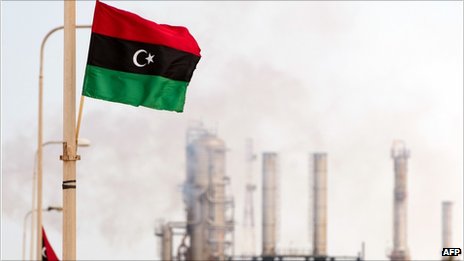
(AFP Photo)
The UN-led dialogue between the two rival Libyan governments is set to fail, said Kamal Abduallah, a Libya specialist at the Al-Ahram Center for Strategic Studies.
Libya currently has two governments. The internationally recognised government is currently based in the eastern city of Tobruk and consists of the democratically elected House of Representatives and the cabinet of Prime Minister Abdulla Al-Thinni, backed by what is left of the Libyan army and forces loyal to former general Khalifa Haftar.
Tripoli, on the other hand, is under the control of the Islamist-dominated General National Congress, which is backed by Libya Dawn, a coalition of Islamist militias.
The United Nations Support Mission in Libya stated on Saturday that the two sides agreed to participate in UN-facilitated political talks in Geneva this week, in the hope that they might “reach common ground”.
“The dialogue is bound to fail because they are not tackling the roots of the problem,” Abdallah said, adding that “the problem is that all the opposing parties in Libya deny each others’ existence. There is no agreement on anything and they are constantly blaming each other”.
The Libyan foreign minister, Mohamed Al-Dairi, who is part of the Tobruk-based government, stated on Saturday that Egypt, the United Arab Emirates, and Saudi Arabia “support” the Libyan military.
He added that without this support, Libya could not continue its “war against terrorism”, Egyptian state-media reported.
Libya Dawn previously claimed that the United Arab Emirates and Egypt were behind several air strikes on militias in Libya last August.
According to Abdallah’s analysis, Egypt has the “wrong” vision regarding the Libya crisis. Egypt, he says, “adopts the idea that the military must have a central role in politics, in the building of the components of a political system. In Libya, however, the army does not have that much societal depth”.
He stated that Libya is a country built on tribal affiliations, and thus tribal powers and agreements take precedence in value over the idea of “the state”.
“This is why the official Libyan government always ends up relying on tribal relations to solve problems. And what is happening now in Libya relates again to tribalism and can only be solved by equating and structuring powers on tribal bases,” Abdallah said.
Al-Dairi also stated that there were reservations on the UN envoy’s initiative for political dialogue, as it is meant to involve Libya Dawn components. The talks should not include “extremist groups,” he said.
Abdallah problematised the two rival political groups’ “over-dependence” on outside support, adding that Egypt, the UAE, and Saudi Arabia support the Tobruk-based government, while Turkey, Sudan, and Qatar support their rivals; the Islamist-backed General National Congress.
“The military capabilities of the army in Libya are very limited, and this is why they need outside aid,” Abdallah said.
According to the Egyptian state-media report, Al-Dairi also stated that Qatar is currently supporting negotiations and playing a mediating role between the Libyan Tripoli government and the militant group Libya Dawn.
For approximately the past four years, violence has been a harsh reality, first surging after the overthrow of former president Muammar Gaddafi who was killed in October 2011 by militant fighters, and once more earlier this year when retired General Khalifa Haftar began a campaign to root out “terrorism” in Benghazi.
The House of Representative (HoR), the elected government of Libya, aligned itself with retired army general Khalifa Haftar, whose forces have been fighting Islamists in the eastern city of Benghazi since last October.
“The security situation in Libya is worsening. While all groups are convinced they have enough power to rule, neither group has the upper hand at the moment,” Abdallah said. “These political problems will translate themselves into societal problems, while the security situation will most likely worsen.”



